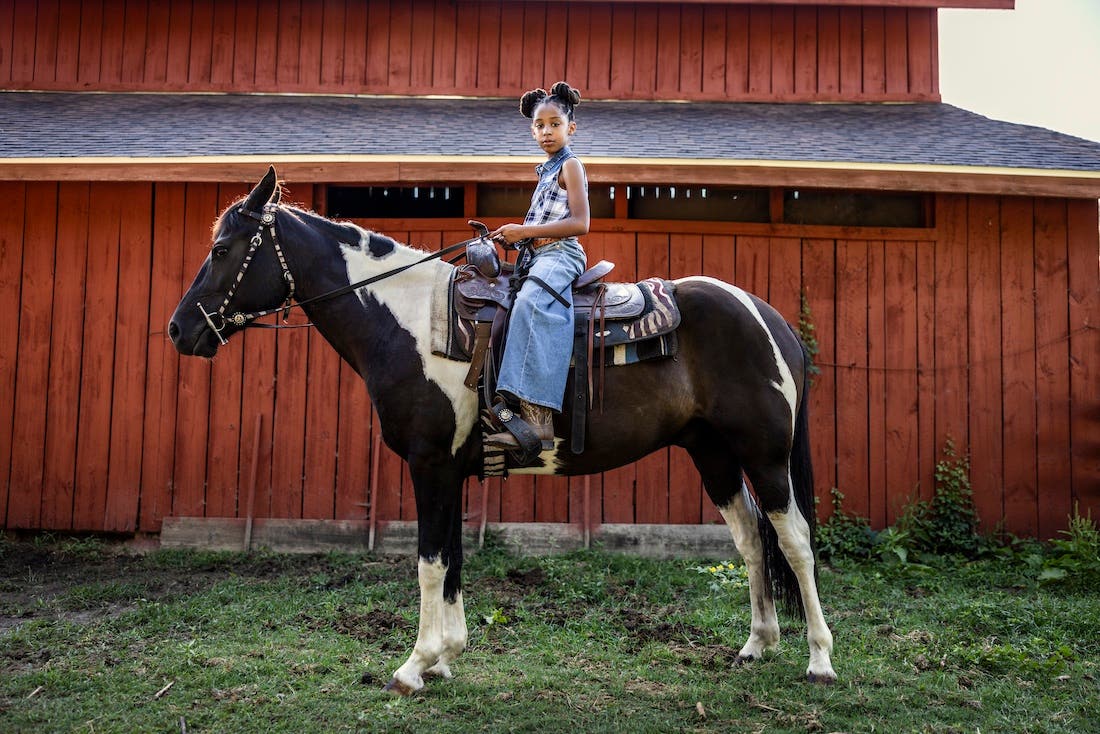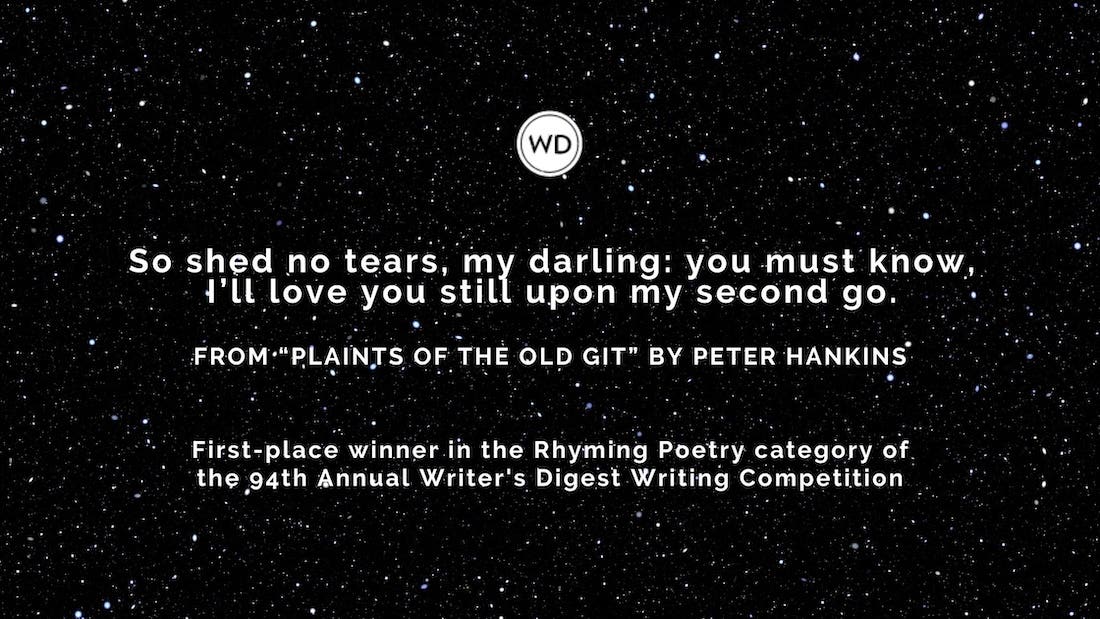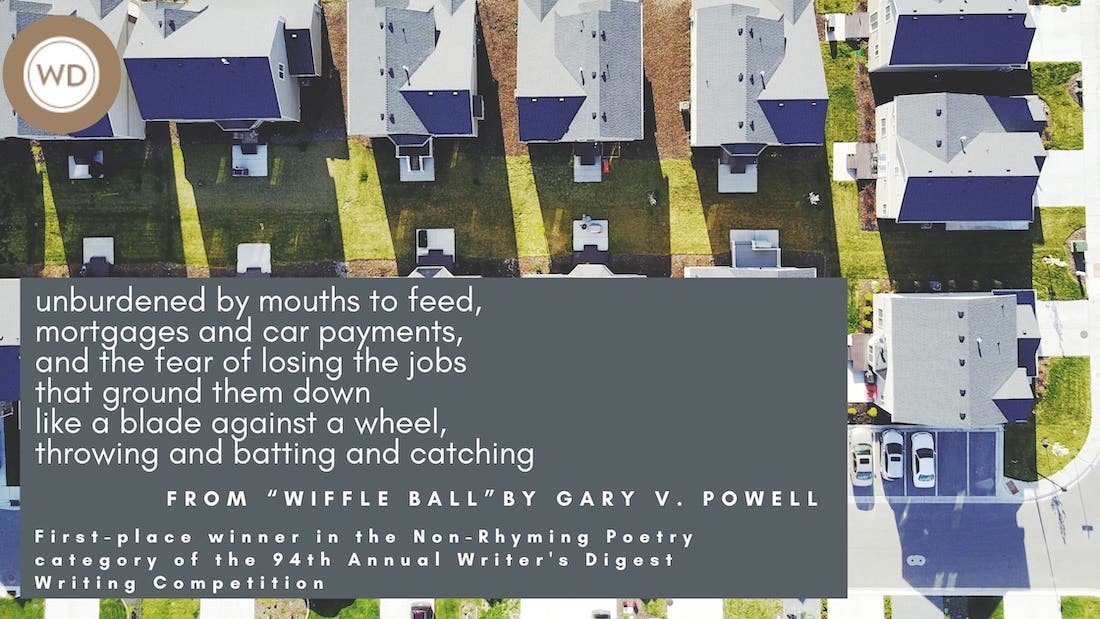Writer’s Digest 93rd Annual Competition Memoir/Personal Essay First Place Winner: “Cupcakes and Eternity”
Congratulations to Kristin Eck, first-place winner in the Memoir/Personal Essay category of the 93rd Annual Writer’s Digest Writing Competition. Here’s the winning essay, “Cupcakes and Eternity.”
Congratulations to Kristin Eck, first-place winner in the Memoir/Personal Essay category of the 93rd Annual Writer's Digest Writing Competition. Here's the winning essay, "Cupcakes and Eternity."
Cupcakes and Eternity
by Kristin Eck
Miss Chapman was a tall, thin woman who bore a striking resemblance to a bird. Her nose was decidedly beaklike, a sharp pointed affair. The messy bun perched at the nape of her neck resembled a nest to our hyperbolic third-grade eyes. But she might have avoided the avian comparison were it not for her mannerisms. She cocked her head, wreathed in straw-yellow hair, in a twitchy, angular fashion. Her eyes darted around our classroom with the intensity of a bird sighting worms in the dirt. Even her posture, poised but stiff, was borrowed from the bird on a branch. And that’s exactly how I remember her standing before us the day of the holiday party.
On a slushy December day, we had trudged into Miss Chapman’s room with an assortment of baked goods in tow. The classroom was generously festooned with red and green paper chains. Our jolly Styrofoam snowmen greeted us with lopsided grins, Popsicle-stick arms flung open in welcome. It was supposed to be a festive day. But there was a strange pall hanging over the room. We lumbered out of winter-wet mittens, took our seats and looked up expectantly.
Miss Chapman stood, urgently vertical, her head tilted at a sharp angle as usual. But what happened next, or didn’t happen, was most unusual. Miss Chapman did not anoint a lucky classmate to affix a magnet matching the day’s weather to the Weather Wheel pie-cut into the days of the week. We did not write our names in the hot or cold lunch columns. There was no lecture on voice levels or taking turns even though it was a class-party day.
We never embarked on a field trip or party without some checklist of Do’s and Don’ts. We had collectively discovered it was a menu of Don’ts sweetened with a few ostensible Do’s. But it was still part of the way things were supposed to be done. Rules and routines were sacrosanct boundaries. Holding firm even when we tried to breach them. And that is just how we liked things even the things we didn’t like. Had something violated the perimeter of our orderly little world?
Miss Chapman took a deep breath. We held ours. Then she broke jarring news. She told us that our classmate Seth had suffered a tragic loss. His father had passed away. Seth was here to join us for part of the celebration. But he would have to leave early. By our first-blush elementary-school calibration, losing his dad and leaving the class party early both seemed weighty. We were caught off balance by this peculiarly cosmic scale.
Miss Chapman had a daunting task. Previewing eternity to a cohort of wide-eyed third graders. Mortality is a tough concept to make palatable in general let alone on the day before Christmas vacation. I must give Miss Chapman credit for her aplomb whether it was by default or design. She used her familiar “let’s-get-down-to-business" tone when she told us about Seth’s dad. The same tone she used for standard directives like opening workbooks or not encroaching on a neighbor’s square on the checkerboard Reading Rug. We barely noticed the foreign accent of sorrow modulating her voice. Or how hard she tried to suppress it as she educated us on death’s ruthless corollaries. The mercurial trajectory of grief, the bittersweet mining of happy memories. Her instruction, scrupulously unvarnished by emotion, belied the tragic curriculum. She kept it pragmatic and fundamental. Like a phonics lesson on death.
We were soothed by the perfunctory delivery, but the unsettling content was still hard to digest. It was difficult to fathom the bewildering rites of passage, or passing, that awaited Seth beyond the fortress of our classroom. The rest of us were intuitively glad we could shelter in place. But unclear on how to extrapolate all this troubling knowledge to Seth. When we looked over at him, after Miss Chapman finished speaking, a lot of us were unsure what expressions our faces should wear. He was a Special Education student so there was already some mystique to him. He left class for mysterious encounters on a regular basis. Now here was another perplexing layer of separation. Seth had been touched by something that seemed too big for him, or any of us, to hold in our little hands.
For many of us third graders, it was a first close encounter with sudden, raw grief. But for all of us, it was an exquisitely disquieting juxtaposition. What place did this awful event have among silver bells and reindeer games? It was like the then-popular Sesame Street skit, where a felt board sported two related objects and a third item that was clearly incongruous. Like a mitten, a hat and a tennis racket. Then a sing-song voice queried: “Which one of these things is not like the others?” Well, the elephant in the (class)room was crystal clear—and that was Seth’s dad dying. Fortunately, Miss Chapman shared our dismay with the discordant note in our midst. We looked to her, our barometer of harmony and order, to silence it.
Miss Chapman had reluctantly ceded the specter of death its brief but necessary audience with her students. Now she needed to navigate all of us, even Seth to whatever degree possible, back to our celebratory agenda. I’m sure Miss Chapman marshaled some teacher superpower to keep trauma at bay. But I think our de facto assumption helped, too. We didn’t think it possible that such an abstract horror could ever get to us. We were already incredulous that it had managed to get so close to Seth. We didn’t want to alienate him. But our instinct was to distance ourselves from the ambiguous heaviness that had settled down around him. When Miss Chapman beckoned the rest of us back to fun and games, we were only too ready to follow. In the end, the hardest thing for Miss Chapman wasn’t getting us back. It was letting Seth go.
When it was time for Seth to leave the party, Miss Chapman faltered. As he edged toward the door, a mountain of cookies and candy threatened to implode on the reindeer plate in his hands. But Miss Chapman anxiously shoveled more treats under the straining cling wrap. Wrangled a hasty bouquet of mini candy canes into the goody bag looped over his wrist. Seth’s emotions were hard to read in general, so it was difficult to say exactly what he was feeling. But he was obviously done with the party. Done with his peers’ inadvertently grating curiosity. Done with lyrics that callously touted “the most wonderful time of the year.” Seth even seemed to be done with Miss Chapman herself. He muttered, almost growled, in protest as she tried to shoehorn a richly frosted cupcake onto the sagging paper plate. It was as if the weight of that last cupcake was simply too much for him to bear.
The rest of us were scattered around the room, busily decorating cookies, drowning our D.I.Y. ornaments in glitter glue, laboring over handmade cards. But we couldn’t ignore the power struggle happening at the door. Our eyes were drawn, magnet-like, to the stand-off between Miss Chapman and Seth. We weren’t used to seeing a student trying to dismiss a teacher. We didn’t know why Seth would do that. He probably didn’t know either.
Perhaps he was rejecting Miss Chapman’s authority because today he knew there were far more powerful forces at work in the universe than his third-grade teacher. Even though just yesterday she’d been one of the mightiest. Miss Chapman was disconcerted, too. She didn’t want to surrender Seth, unfortified, to the cruel world beyond her classroom. There was nothing to do but dispense her waning power in a currency of calories.
“Seth, please take the cupcake,” she was almost pleading with him.
But he was done. His plate was full. He was sweating in his winter coat. He emitted a guttural, strangled sob as he put his mittened hand on the doorknob. And then he was gone with his feast of treats. And some of the sweetness in the room went with him.
We looked back to Miss Chapman, the abandoned cupcake cradled in her still-extended hand. Her impeccable posture dissolved in a crestfallen valley of slumped shoulders. One of her baby birds had fallen out of the nest. And she didn’t have enough frosting to soften the fall. We hardly recognized this woman gutted and stooped with despair. But the next moment, her shoulders snapped back into place. She reinhabited her full height. Took a brisk survey of the room with a jerky, flitting swivel of her head. To our great relief, she looked just like a bird.
Our third-grade world had its North Star back. Miss Chapman led us out of the mysterious detour that had claimed Seth’s family. Redirected our fickle attention to truly complex matters like the proper sequence of scissor cuts for a snowflake chain. We gorged ourselves on peppermint and fudge. The holiday spirit resurfaced in our cozy classroom. By the time we reached the grand finale of story time and hot chocolate, it felt like death hadn’t come to our party at all. Buzzy but sated with sugar, we returned to our desks. The class eagerly watched Miss Chapman gather up a stack of bright red cups, an industrial-sized can of whipped cream and an armload of hot cocoa packets. She set one aside for Seth. She would send it home with him another day.
Most years in the Decembers of my adulthood, my mind will light upon the memory of that elementary-school day. Suddenly, I’m teleported back to that time and place. The wintry playground unspools beyond the flurry of paper snowflakes on our classroom window. Miss Chapman’s vigilant silhouette unfolds before me like a paper doll. I see the pain in Seth’s eyes. I feel a discomfiting chill on my spine. A deep, sad hurt for Seth’s loss of innocence. A wistful empathy for the nine-year-old me bearing witness to the frailty of the human condition; glimpsing the darkness instead of a light at the end of the tunnel.
I think of Seth’s father, himself a tragic abstraction to me. But his passing eternally deposited in my childhood memory bank. I consider how strange it is that we randomly appear on the canvases of each other’s lives. Or unwittingly play bit parts in someone else’s storyline. That we can hijack other people’s most intimate tragedies without even realizing it. Preserving them forever in the amber of an adjacent stranger’s memory. Just like Seth’s father’s death lives on in mine.
I’ll never forget the winter day Miss Chapman told us Seth’s father had died. Or the haunting simile it imprinted on my brain: How much death is like a snowflake kissing the sun. A singular crystalline entity dissolved in an instant cruel, inevitable, arbitrary as the dissolution of a unique human life. My mind stalls, as it always does, if it idles too long in this existential pathology.
But I blink my eyes. The raw edges of the memory soften. The third-grade day recedes back to its rightful place in time. And I am recalled to Christmas present. There are gifts to give. Cookies to bake. The lights on the tree twinkle. An aroma of mulled cider blossoms from a thick red candle. I hear the odd footstep or voice, the pitch of a laugh, the scuffle of a pet’s paws. The gentle narrative of my home.
It seems Miss Chapman’s wisdom withstands the test of (Christmas)time. Sometimes, maybe most of the time, it’s good to let gingerbread or jingle bells—or whatever makes your life the sweetest—sugarcoat death’s bitter truth. And I guess I’m not so different from my third-grade self even after all these years.
I still wish for less eternity and more cupcakes.








